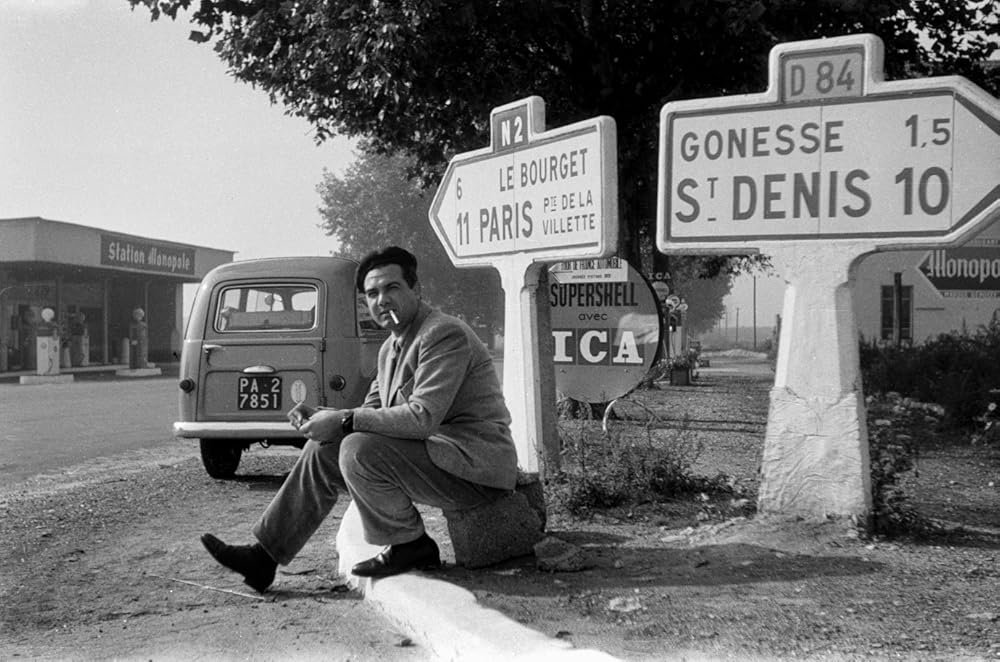
I understand Constanza Quatriglio’s impulse to record the disassembly of her father’s files. The disassembly is being done conscientiously and with all good intentions by archivists from the Central Library of the Sicilian Region, who are interested in materials relating to her father, Giuseppe Quatriglio. For 80 years, he was a journalist with the Giornale di Sicilia newspaper, covering national and international issues from Jan. 18, 1944, onwards when Allied Forces liberated Sicily from the Fascist regime.
But seeing books emptied off shelves and cataloged a masse with photos and 8mm reels packed one at a time is like having him taken apart, boxed up and arranged in ways that were alien to her when he was still alive.
She speaks of a “chaos” that disappears from an archive once it has been systematically reorganized by librarians. The chaos of life. Or as Giuseppe himself says in an old home video while pointing to cluttered shelves: it’s not very organized but I know where everything is.
I get this because my own parents are in their eighties and we’ve recently started going through their bookshelves to see which child or grandchild would like to have this or that book, which others will be donated to charity or thrown in the paper bin. It’s a beautiful thing being able to do this with them going through their memories one book at a time but it also unmistakably feels like we’re performing some kind of pre-mortem funeral rite; as if saying goodbye to their possessions were practice for saying goodbye to themselves.
For me, as for Constanza and her father, books and photographs make up the largest part of this inheritance: old B-novels just as much as serious reference works (perhaps more so; they seem more personal) that have been guarded and dusted off for decades but by now are probably outdated.
I understand why Constanza keeps filming the shelves and books, the boxes and papers, the notebooks and more than 60,000 photographic negatives while nerdy archivists and muscular movers catalogue, pack and remove her father’s materials from his study. But if you don’t share this feeling of a book collection as an imprint of a person’s personality and its dismantling as a funerary rite, then I’m afraid these scenes with all their repetitions; at 132 minutes, the film is generously proportioned will mostly just seem very long.
What does The Secret Drawer hope to accomplish? Often, filmmakers (particularly documentarians) follow their own curiosity under the belief that whatever they come up with will be interesting to others too. But when your subject matter is as personal as a parent’s estate, there’s an obvious risk that your film becomes too private lacks universality.
This, in all honesty, is how the film came across to me. It’s true that Costanza’s father was a journalist who traveled around the world extensively but most of his documents seem banal despite recording many journeys (such as his tour of America in the 1950s or filming the Berlin Wall in 1963) and encounters with famous people (from Winston Churchill to countless movie stars like Cardinale, Dietrich, Hepburn, Heston, Peck and Grant). Giuseppe was a good but not great photographer and many of the chosen film clips seem more like souvenirs than news footage.
In the meantime her voiceover lists one event after another from her father’s life in chronological order usually accompanied by emotions. What I’m missing is a deeper understanding about him as a journalist: what drove him? What were his ethics? How did he see things? “My father never told me much, almost nothing,” says Costanza. Rarely does she use his own words as captions beneath images which could have given an idea about what kind of person created these journalistic works.
Maybe for Italians more than any other audience there will be recognizable moments throughout this documentary; not all Italian dignitaries or celebrities are known by name outside Italy and those mentioned national news events may serve merely as reminders for people who lived through them. Such as the great Belice earthquake or Alberto Burri’s later land art project for that area Cretto di Burri. Or graffiti found on walls of prisons of Palazzo Chiaromonte in Palermo by Spanish Inquisition condemned prisoners discovered Quijote Hotel director Giuseppe Quatriglio during shooting.
But maybe it’s even smaller still perhaps this is time-traveling exploration that will be appreciated most by local viewers. Because first and foremost Giuseppe Quatriglio was Sicilian journalist through and through. So when Costanza reflects on her own roots and what has been lost she’s speaking directly into hearts of people who share those same concerns within their own communities here.
It says something about how important his life’s work must have been seen on the island when Central Library alone is preserving some 25 meters ’worth of books and other archival papers (not counting photographic material also being digitized and preserved) but no doubt librarians themselves may well appreciate this filmed meditation more than most.
Ultimately though, it’s a question every person must ask themselves after losing parent: who still cares? Who wants to know? Am I alone or can we grieve together, privately but publicly too? In at least asking these questions documentary becomes universal as does any work dealing with grief.
For More Movies Visit Putlocker.